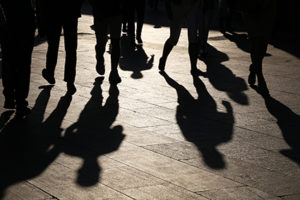Religious organisations are addressing COVID-19 disparities
Religious organisations are addressing COVID-19 disparities
Widespread and deeply embedded racial, ethnic, and socioeconomic disparities have become increasingly clear as the coronavirus continues to plague Europe. Religious institutions and faith groups, from the Vatican and Caritas Europa to an Orthodox church in Albania and a Sikh community in Kent, have been calling on politicians to address this inequality, and in many instances, they have stepped in to fill the gaps themselves.
COVID-19 uncovers social and economic disparities
A recent study by the Guardian shows that minority groups disproportionately account for COVID-19 deaths by as much as 27% in the UK, the European country hardest hit by the virus. The Guardian investigation found that of 12,593 patients who died of coronavirus in hospitals up to 19 April, 19% were Black, Asian and minority ethnic, while such groups comprise just 15% of the population in England.[1] Of the first 2,249 patients who tested positive with Covid-19 in the UK, 35% were non-white.[2]
Le neuf-trois, an area in Seine-Saint-Denis, just north of Paris, and the poorest area in mainland France, has witnessed over 20,000 COVID-19 deaths. Despite having the highest rates of underlying conditions like obesity, diabetes, and asthma in France, Seine-Saint-Denis has the lowest proportion of doctors to residents.[3] A similar trend can be seen in Barcelona, where residents of poor neighborhoods are six to seven times more likely to get the virus than residents of wealthy areas.[4] And in Italy, an early hotspot for the virus, there have been instances of the mafia exploiting the poor by increasing debt interests, manipulating market prices for essential goods, and refusing to suspend rent payment for residences they operate.[5] Further, refugees seeking asylum in Turkey and Greece have been subject to overcrowded camps, where the virus could run rampant.[6]
Religious organisations are filling the gaps
Religious groups have demanded major changes to the handling of social and economic disparities, especially in the face of COVID-19. As an example, in his Easter speech this year, Pope Francis proposed the inauguration of a universal solidarity income or global minimum wage, in an effort to protect workers’ rights amidst the coronavirus pandemic, and ensure their security in the wake of future crises.[7] Relatedly, the Jesuit Refugee Services in Greece has called for a rapid response to dire conditions in refugee camps, calling attention to a humanitarian crisis that has been left unchecked for far too long. [8]
But religious organisations are not just calling on others – from the EU political establishment to local leaders – to take action in the wake of major public health and economic disparities. They are also stepping in themselves. For instance, religious groups have circulated information where language barriers and lack of access to technology have made it impossible to keep up with relevant news. This is illustrated by volunteers from the Jewish community council in Stamford Hill, a prominent Hasidic neighborhood in London where many residents have little access to mainstream media and some do not speak English, who took it upon themselves to disseminate information in Hebrew and Yiddish, including via loudspeaker from cars that drove through the neighborhood.[9]
Religious groups have also provided financial aid to those in need. For example, the pope made headlines for providing aid to a transgender community in Italy with mostly poor and vulnerable sex workers, who have struggled to survive through the government-imposed lockdown.[10] And most notably, faith groups have been working hard to support their communities with protective gear, food, and household goods. In Albania, an Orthodox Church donated a supply of 1,000 masks, 1,000 gloves, and 100 litres of disinfectant to the police office of Tirana.[11] Volunteers part of a Sikh community in Kent deliver at least 850 meals per day to nearby hospitals, care homes, and other individuals in need.[12]
Towards a better “new normal”
It has become clear that religious organisations and affiliated NGOs in Europe have had a considerable impact in fighting COVID-19 disparities by reminding policy makers across the region of the plight of marginalised people, as well as through their own efforts to provide aid and support where political leaders have not. The religious sector, through its unique sphere of influence, has reminded us to remedy ever-present inequalities, and to work towards a better post-pandemic future. While secular society anticipates a “new normal” after the virus runs its course, the religious sector has called for not just “normal,” but for a more just and sustainable socio-economic and political order for a more long-term solution in narrowing the social gap in Europe.
Olivia De Silva and Joshua Amiel Marasigan
Want to know more about similar topics? Go to the EARS Dashboard and get free weekly updates.
[1] Ethnic minorities dying of Covid-19 at higher rate, analysis shows
[2] Coronavirus: Why some racial groups are more vulnerable
[3] In a Paris banlieue, coronavirus amplifies years of inequality
[4] Poor and vulnerable hardest hit by pandemic in Spain
[5] Italian Church denounces mafia taking advantage of poor caught in coronavirus credit crunch
[6] Coronavirus: Jesuit Refugee Service warns situation for asylum seekers on Lesbos a “health bomb”
[7] Papa Francesco scrive ai movimenti e propone stipendio di base per tutti i precari del mondo
[8] Coronavirus: Jesuit Refugee Service warns situation for asylum seekers on Lesbos a “health bomb”
[9] Jewish leaders fear ultra-Orthodox Jews have missed isolation message
[10] Paus schenkt fondsen aan transgendergemeenschap
[11] Orthodox Church Helps Police with Virus Protective Items
12] 850 meals a day: UK faith groups in push to feed NHS
